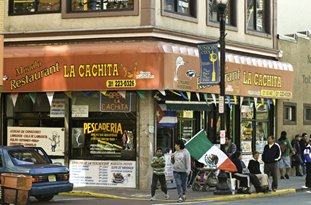Environmental Justice
Environmental Justice (EJ) in transportation has been defined as the fair distribution of transportation benefits and burdens among all people. Under federal regulations pertaining to Environmental Justice, a Metropolitan Planning Organization (MPO) ensures that its Long Range Transportation Plan (LRTP) and Transportation Improvement Plan (TIP) are consistent with Title VI of the 1964 Civil Rights Act, identifies and assesses the transportation needs of low-income and minority populations, and acts to improve public involvement processes to eliminate participation barriers for low-income and minority persons.
 EJ concerns are integrated across all NJTPA planning activities. Through its work with Together North Jersey (TNJ), the agency has developed improved data and strategies for enhancing EJ including:
EJ concerns are integrated across all NJTPA planning activities. Through its work with Together North Jersey (TNJ), the agency has developed improved data and strategies for enhancing EJ including:
-
working with many groups representing underserved communities and conducting outreach throughout the region;
-
preparing a Regional Fair Housing and Equity Assessment and other topic papers looking at the intersection of many EJ concerns—transportation, housing, social services, education and many others; and
-
promoting transit-oriented development, which is particularly relevant to older and denser communities which tend to have larger low income, minority populations.
Complementing the recommendations of the Together North Jersey Plan, NJTPA planning activities and studies help identify and address the needs of underserved communities including through the following efforts:
-
Subregional Studies supported by the NJTPA are required to conduct an Equity Assessment and provide secondary language services in outreach
-
NJTPA project prioritization critieria include bonus points for projects in urban areas, designated centers and distressed municipalities and those providing benefits to underserved communities
-
The NJTPA coordinates and administers a number of funding programs that particularly benefit underserved communities: statewide TMAs, CMAQ-funded shuttles, Local Safety projects
-
NJTPA is working with state agencies to implement the Regional Coordinated Human Services Transportation Plan, to improve many county and local services for individuals with disabilities, older adults, and lower income populations.
-
NJTPA public outreach efforts make special efforts to a diverse range of stakeholders and the public. The NJTPA’s Public Engagement Plan commits to special efforts to promote involvement of under-represented groups and communities.